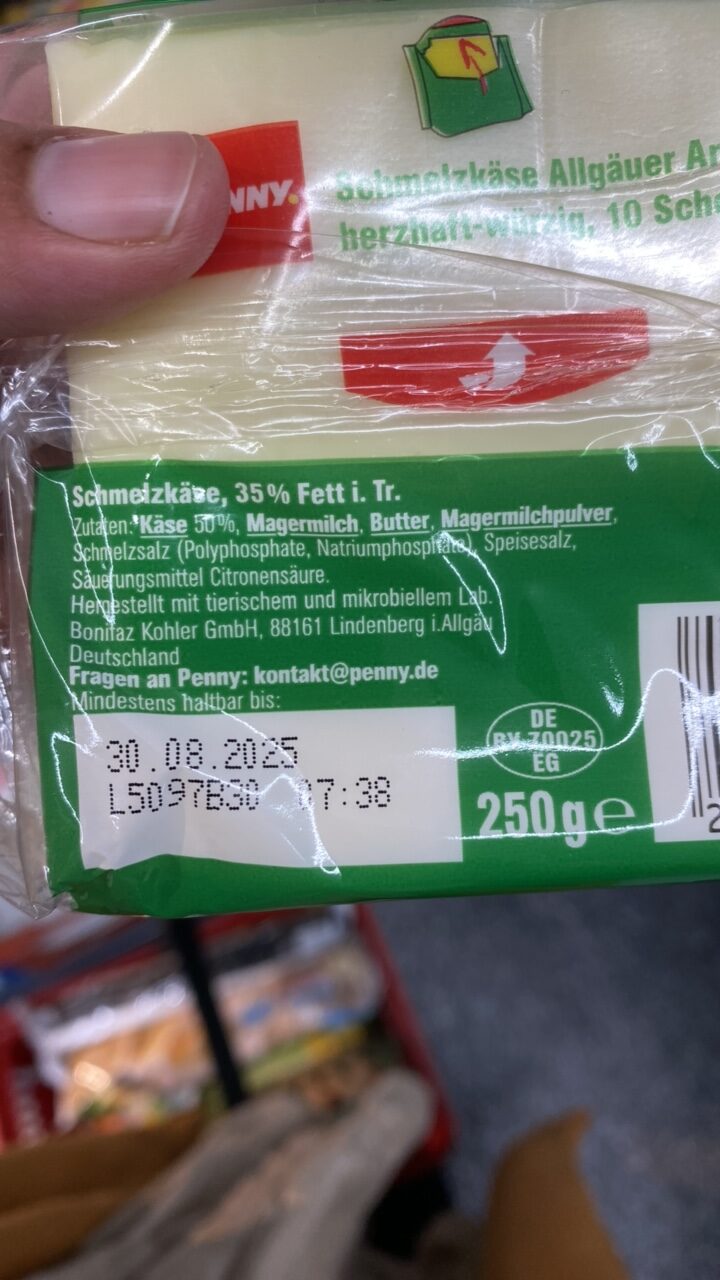
Barcode: 21740374
Schmelzkäse
DOUBTFUL
📝 Reason: Check for Halal Logo
📄 Certificates: None
Ingredients:
Details
Understanding the Halal Status of Schmelzkäse
Schmelzkäse, a popular cheese product, has garnered attention in diverse culinary circles. However, if you’re a consumer following halal dietary laws, understanding its halal status is paramount. In this post, we delve into whether Schmelzkäse is halal, examining its ingredients and E-numbers closely.
What is Schmelzkäse?
Schmelzkäse, also known as processed cheese, is made from a combination of dairy products and additives. This versatile cheese is celebrated for its creamy texture and ability to melt smoothly, making it a favorite for sandwiches, snacks, and cooking. However, the halal status of its ingredients can vary, leading to some uncertainty among consumers.
Ingredients Breakdown
The ingredients found in Schmelzkäse include:
- Käse (Cheese)
- Magermilch (Skimmed Milk)
- Butter
- Polyphosphate
- Sodium Phosphates
- Speisesalz (Table Salt)
- Citronensäure (Citric Acid)
- Säuerungsmittel (Acidifying Agent)
Halal Status of Each Ingredient
To better understand whether Schmelzkäse meets halal dietary requirements, we will analyze the halal status of each ingredient:
- Käse: Naturally halal since it is derived from dairy. Source.
- Magermilch: Naturally halal. This dairy product is widely accepted as halal-compliant. Source.
- Butter: Similarly, butter is made from cream and is considered halal. Source.
- Polyphosphate (E452): This ingredient is used as a thickener and emulsifier and is typically derived from mineral sources, but its halal status can be questionable depending on the production process. This makes it a doubtful component for halal diet adherence. Source.
- Sodium Phosphates (E339): These are often used as emulsifiers and preservatives; the halal status can vary based on their source and processing, raising doubts about their permissibility for halal diets. Source.
- Speisesalz: Naturally halal as it is a mineral salt.
- Citronensäure: Derived from plants, this ingredient is halal. Source.
- Säuerungsmittel: The source of this acidifying agent is unclear, which can potentially render it non-halal, further complicating Schmelzkäse’s overall halal status.
Conclusion
Considering the analysis above, the halal status of Schmelzkäse is categorized as DOUBTFUL. While many ingredients are naturally halal, the presence of certain additives such as Polyphosphate and Sodium Phosphates, alongside the unclear origin of the Säuerungsmittel, raises concerns. Therefore, it is advisable for consumers to look for halal certification on the packaging of Schmelzkäse or check for the halal logo when making a purchase decision.
As halal-conscious consumers, it’s paramount to remain vigilant about what enters our diets. Always consult trusted sources or organizations for guidance on food products. Make informed choices for a lifestyle aligned with your beliefs!

